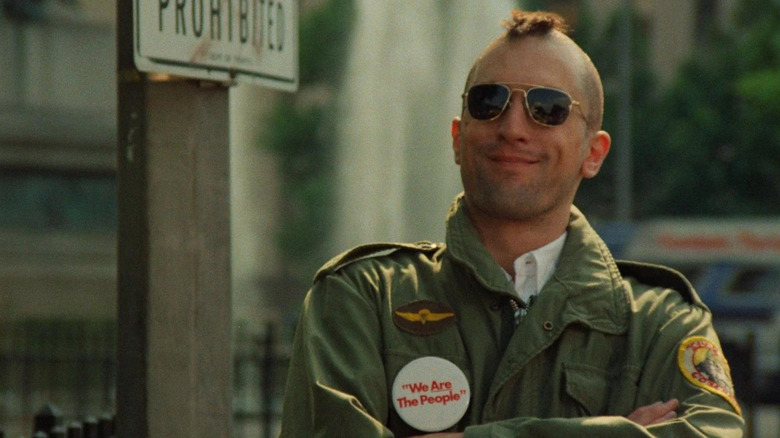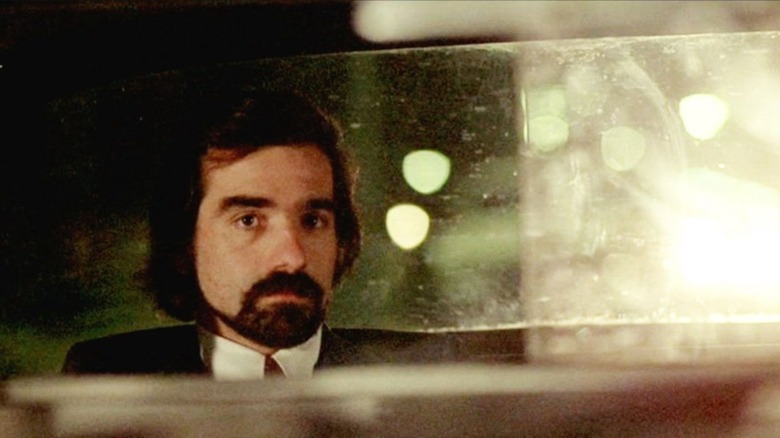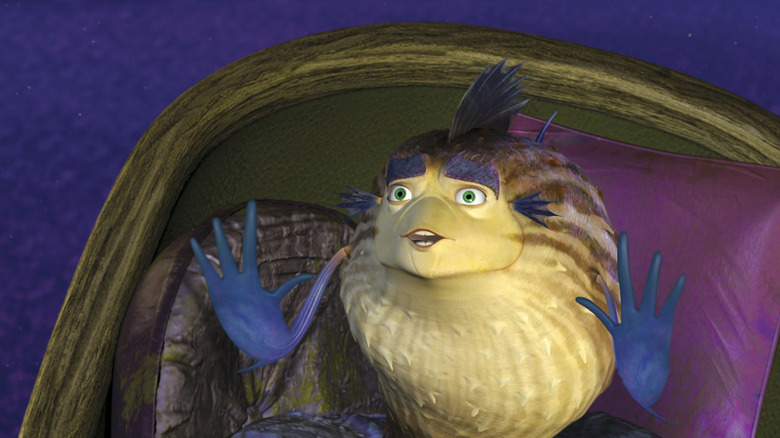
Filmmakers appearing in their own movies is a time-honored tradition. Most tend to make small cameo appearances in the style of Alfred Hitchcock, the suspense filmmaker who made such a staple out of sneaking into his films so often that directors still refer to such brief appearances as a "Hitchcock cameo."
On the other side of the spectrum, there is a substantial number of directors who give themselves characters to play in their own films who are a little more significant than your average cameo. In some cases, this is due to the filmmakers' auteurist goals, making their appearance part of an overall personal artistic statement, something frequently done by Kevin Smith and M. Night Shyamalan, for example. In other cases, it's a way for directors who also act to flex their performing muscles, as with actor-directors like Jon Favreau and Clint Eastwood.
The third category of directors acting in their own films has nothing to do with cheeky cameos or intentional casting, but rather pure circumstance. It's into this category that director Martin Scorsese's appearance in his 1976 film "Taxi Driver" falls. Scorsese had no intention of playing the small but pivotal role of one of Travis Bickle's fares, but thanks to star Robert De Niro, Scorsese was convinced to make an appearance — and ended up jumpstarting a minor acting career for himself in the process.
Scorsese Ends Up Talkin' To Him

Scorsese had made brief on-screen turns in his first three feature films, giving himself a couple lines as a brothel customer in "Boxcar Bertha" and showing up in "Who's That Knocking at My Door" and "Mean Streets" as gangsters. Compared to those cameos, however, the part of "Passenger Watching Silhouette" in "Taxi Driver" was a bonafide role, with the character delivering a page-long monologue. For that reason, Scorsese had already cast actor George Memmoli in the part. The actor had already worked with Scorsese in "Mean Streets," not to mention having a memorable role in Brian De Palma's "Phantom of the Paradise" as a sleazy record company enforcer. Unfortunately, he was injured on another movie before he was due to film his "Taxi Driver" part.
Instead of scrambling to recast the role, De Niro suggested that Scorsese take it himself. De Niro was the only one convinced this was a good idea. According to Scorsese, "Everyone was against it." As writer Paul Schrader explained, this wasn't a reflection on Scorsese's ability as a performer so much as a worry about the final cut, believing that "Marty would see himself and would be so mortified and cut himself out of the movie..." Regardless, Scorsese became convinced to play the role given his belief that "Taxi Driver" was already going against the commercial cinematic grain, viewing the production as "a film that was made for us and not a popular film in the sense that we could take chances and see what happened."
When it came to shooting the scene, De Niro not only gave his director some acting tips, but actual direction to boot. Scorsese recalled that De Niro "pointed out to me that the first dialogue was 'Turn off the meter,'" with De Niro explaining to the director that he should "make me turn [the meter] off." As the actor put it, "I'm not going to turn it off until you convince me that you want me to turn off that meter."
De Niro's method-infused acting techniques helped fuel the scene and deepen Scorsese's performance. Scorsese found that "using that tension of the inherent violence" of Bickle not turning his head during the scene made him "able to take off and riff some dialogue," helping to make the scene more powerful. Schrader was elated that Scorsese "saw [the finished scene], he loved it, and he kept every single bit of himself in."
Scorsese In Front Of The Camera

It's a little disingenuous to say that Scorsese's experience making "Taxi Driver" caused him to be bit by the acting bug. He'd made those aforementioned initial cameos, of course, and he clearly enjoyed being in front of the camera. That pivotal speaking role in "Taxi Driver" isn't even his only appearance in the film, and he would take more walk-on roles in several of his future features. But Scorsese has seen several prominent acting roles in the works of other filmmakers.
In the years since "Taxi Driver," Scorsese has acted for directors like Paul Bartel, Bertrand Tavernier, Akira Kurosawa, and Robert Redford. While he would play himself in a handful of films and TV shows (most notably a two-episode run on "Curb Your Enthusiasm"), perhaps his most "accomplished" acting role remains the voice of Sykes, a pufferfish who is also a loan shark in 2004's "Shark Tale." After all, if the ultimate goal of an actor is to transform themselves into someone completely different, you can't get much more different than a pufferfish, even if the character bears a striking resemblance to the filmmaker himself (look at those eyebrows!). So the next time you watch "Shark Tale," you can thank Robert De Niro for sparking Scorsese's proper acting career.
Read this next: Every Martin Scorsese Feature Ranked From Worst To Best
The post You Can Thank Robert De Niro For Martin Scorsese's Taxi Driver Role appeared first on /Film.
from /Film https://ift.tt/3rCLsqh
